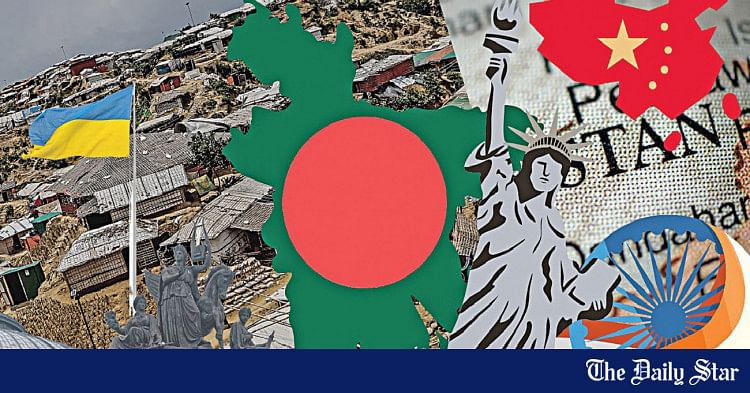
Jharkhand CM asks BJP why Hasina was given refuge in India
India's Jharkhand Chief Minister Hemant Soren on Sunday fired back at BJP over accusing his party, Jharkhand Mukti Morcha (JMM), of fostering Bangladeshi infiltration in the state
Jharkhand CM asks BJP why Hasina was given refuge in India

Photo: Collected
India's Jharkhand Chief Minister Hemant Soren on Sunday fired back at BJP over accusing his party, Jharkhand Mukti Morcha (JMM), of fostering Bangladeshi infiltration in the state.
Soren questioned the central government's decision to provide refuge to ousted Bangladeshi prime minister Sheikh Hasina, pressing for clarity on the BJP's stance on relations with Bangladesh.
He also criticised the supply of electricity from Jharkhand's Godda power plant to Bangladesh "while locals bear the environmental cost", reports our New Delhi correspondent.
Speaking at a rally in Ranka, Garhwa, the CM challenged the BJP's infiltration claims, saying, "I would like to know whether BJP has some sort of internal understanding with Bangladesh," while demanding an explanation for Hasina's landing in India.
"Infiltrators from Bangladesh enter India through BJP-ruled states. They are saying it themselves," he added.
Soren's remarks followed a speech by Indian Home Minister Amit Shah, who accused Jharkhand's government of sheltering Bangladeshi infiltrators for electoral gains.
"You have given shelter to infiltrators. You made infiltrators your vote bank," Shah said, promising to "drive out infiltrators" if BJP is elected.
In response, Soren underscored that border security is the central government's responsibility. "Infiltrators enter India through states ruled by you (BJP). Why don't you check infiltration there?" he said, accusing BJP of divisive tactics and alleging conspiracies against his administration since 2019.
Soren also criticised the Godda power plant agreement, saying, "electricity produced in Jharkhand is being supplied to Bangladesh while the people of the state are left to deal with the pollution."
Elections to the 81-member Jharkhand Assembly will take place in two phases on November 13 and 20, and votes will be counted on November 23.
Ruling JMM will contest elections as a part of the Opposition's INDIA bloc, having fielded candidates in 43 assembly seats. Its ally Congress has been allocated 30 seats.
Photo: Collected
India's Jharkhand Chief Minister Hemant Soren on Sunday fired back at BJP over accusing his party, Jharkhand Mukti Morcha (JMM), of fostering Bangladeshi infiltration in the state.
Soren questioned the central government's decision to provide refuge to ousted Bangladeshi prime minister Sheikh Hasina, pressing for clarity on the BJP's stance on relations with Bangladesh.
He also criticised the supply of electricity from Jharkhand's Godda power plant to Bangladesh "while locals bear the environmental cost", reports our New Delhi correspondent.
Speaking at a rally in Ranka, Garhwa, the CM challenged the BJP's infiltration claims, saying, "I would like to know whether BJP has some sort of internal understanding with Bangladesh," while demanding an explanation for Hasina's landing in India.
"Infiltrators from Bangladesh enter India through BJP-ruled states. They are saying it themselves," he added.
Soren's remarks followed a speech by Indian Home Minister Amit Shah, who accused Jharkhand's government of sheltering Bangladeshi infiltrators for electoral gains.
"You have given shelter to infiltrators. You made infiltrators your vote bank," Shah said, promising to "drive out infiltrators" if BJP is elected.
In response, Soren underscored that border security is the central government's responsibility. "Infiltrators enter India through states ruled by you (BJP). Why don't you check infiltration there?" he said, accusing BJP of divisive tactics and alleging conspiracies against his administration since 2019.
Soren also criticised the Godda power plant agreement, saying, "electricity produced in Jharkhand is being supplied to Bangladesh while the people of the state are left to deal with the pollution."
Elections to the 81-member Jharkhand Assembly will take place in two phases on November 13 and 20, and votes will be counted on November 23.
Ruling JMM will contest elections as a part of the Opposition's INDIA bloc, having fielded candidates in 43 assembly seats. Its ally Congress has been allocated 30 seats.








